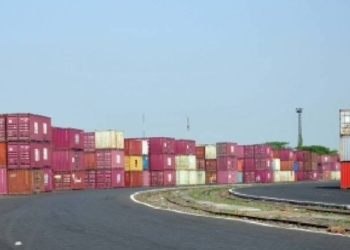New Delhi: The healthcare industry on Thursday urged the government to invest in robust health systems in the upcoming Union Budget 2026-27.
The Association of Healthcare Providers of India (AHPI) stated that enhancing healthcare funding in the upcoming Union Budget is crucial to address critical gaps in infrastructure, skilled workforce, and equitable access to affordable healthcare across the country.
Last year, the government allocated approximately Rs 90,658 crore to the Ministry of Health and Family Welfare, marking a 12.5 per cent increase from the previous year.
Despite this rise, public health expenditure remains below 2.2 per cent of India’s GDP, falling short of the National Health Policy target of 2.5 per cent and global standards for developing economies.
AHPI highlighted that as India faces a rising burden of both communicable and non-communicable diseases, alongside growing demand for specialty and preventive care, the next budget must prioritise health system strengthening in rural and underserved areas to ensure universal health coverage.
“To secure a healthier future for India, it is imperative to invest in robust health systems today. We urge the government to substantially enhance healthcare funding in Budget 2026-27, laying the foundation for world-class and inclusive care for every citizen,” said Dr. Girdhar Gyani, Director General, AHPI.
“Expanding infrastructure, strengthening the workforce, and enabling equitable access to quality services, especially in tier 2 and tier 3 cities, are critical to meet the evolving healthcare needs of the nation,” he added.
NATHEALTH- Healthcare Federation of India called for reducing cancer care costs, allocating proceeds from healthcare CESS, and the proposed 35 per cent GST slab on tobacco and sugar products to strengthen public health programmes.
“India’s healthcare sector is at a defining crossroads, presenting both complex challenges and transformative opportunities. The upcoming Union Budget offers an unprecedented chance to address systemic gaps such as the acute shortage of medical specialists, escalating cancer care costs, and inadequate hospital infrastructure to meet the demands of a growing population,” said Abhay Soi, President, NATHEALTH.
“Expanding hospital capacity, viable reimbursement frameworks, reducing treatment costs, and advancing medical education will not only address current challenges but also secure India’s position as a global healthcare leader. These efforts will ensure a healthier and more sustainable future for all,” he added.
Sudarshan Jain, Secretary General, Indian Pharmaceutical Alliance, urged the Union Budget to prioritise innovation, ease of doing business, and policies that strengthen the life sciences ecosystem.
(IANS)
















